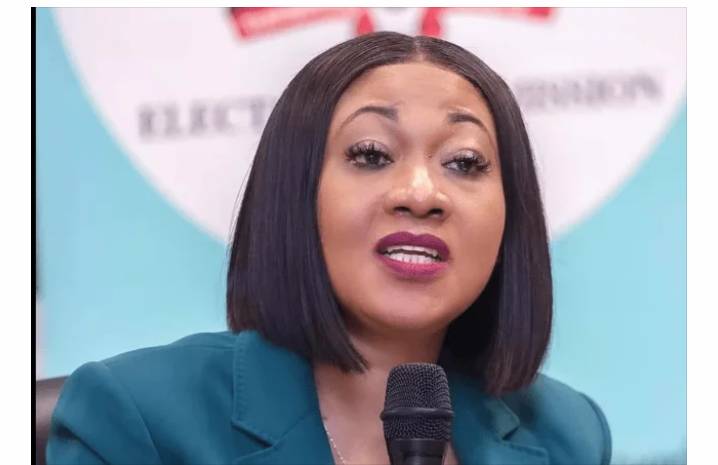Removing Jean Mensa and Her Deputies: Not the Solution to Bias and Partisan Allegations
The recent calls for the removal of the Chairperson of the Electoral Commission (EC), Jean Mensa, and her deputies have sparked heated debates across Ghana. Critics argue that their perceived bias and partisan leanings undermine public trust in the EC. However, it is essential to critically evaluate whether such drastic measures will truly address the concerns or merely serve as a temporary fix.
Understanding the Allegations
The EC, as the body responsible for overseeing free and fair elections in Ghana, plays a pivotal role in maintaining democracy. Any allegations of bias or partisanship against its leadership are bound to attract widespread attention and scrutiny. While some groups have accused Jean Mensa and her team of favoring certain political parties, these claims often stem from mistrust within the polarized political environment in Ghana.
It is crucial to remember that every EC leadership, regardless of its composition, has faced similar accusations. From the tenure of Dr. Kwadwo Afari-Gyan to that of Charlotte Osei, criticisms of bias have been a recurring theme. This suggests that the issue may not necessarily lie with the individuals in office but with systemic challenges and the highly partisan nature of Ghanaian politics.
The Problem with Removal
Removing Jean Mensa and her deputies might seem like a straightforward solution, but it risks creating more problems than it solves. Here’s why:
-
Lack of Institutional Stability: Frequent changes in leadership can undermine the EC’s stability and institutional memory. The commission needs experienced leaders who understand the intricacies of the electoral process to ensure continuity and efficiency.
-
Political Precedent: Removing EC officials based on allegations could set a dangerous precedent. It may open the door for political parties to target future leaders of the commission, further eroding its independence.
-
Systemic Issues Remain: Replacing the current leadership does not guarantee that the underlying issues will disappear. Without addressing the structural problems and ensuring transparency in the EC’s processes, any new leadership will likely face similar criticisms.
-
Public Perception: Such a move might reinforce the perception that the EC is a political pawn, influenced by those in power. This would deepen public mistrust rather than resolve it.
The Way Forward
Instead of calling for the removal of Jean Mensa and her deputies, stakeholders should focus on addressing the systemic challenges facing the EC. The following steps could help restore public trust and strengthen the commission’s independence:
-
Institutional Reforms: There should be a comprehensive review of the EC’s operations, including its appointment process, funding, and decision-making mechanisms, to ensure greater transparency and accountability.
-
Public Engagement: The EC must actively engage with the public and stakeholders, explaining its decisions and actions to dispel any misconceptions and build confidence in its neutrality.
-
Strengthening Oversight: Parliament and civil society organizations should play a more robust role in monitoring the EC’s activities to ensure compliance with the law and impartiality.
-
Promoting Political Maturity: Political parties must demonstrate a commitment to democratic principles by refraining from actions and rhetoric that undermine the EC’s credibility. Constructive criticism and dialogue should replace baseless accusations and inflammatory statements.
Conclusion
Removing Jean Mensa and her deputies may appear to be a quick fix, but it is not the solution to allegations of bias and partisanship within the EC. The real challenge lies in addressing the systemic issues that fuel mistrust and ensuring that the commission operates transparently and independently. Ghana’s democracy depends not on the personalities leading its institutions but on the strength and credibility of the institutions themselves. Let us focus on reforms and dialogue rather than perpetuating a cycle of blame and replacement.
By strengthening the EC as an institution, we can safeguard the integrity of our electoral processes and uphold the principles of democracy that Ghanaians cherish.




No comments yet
Be the first to share your thoughts!